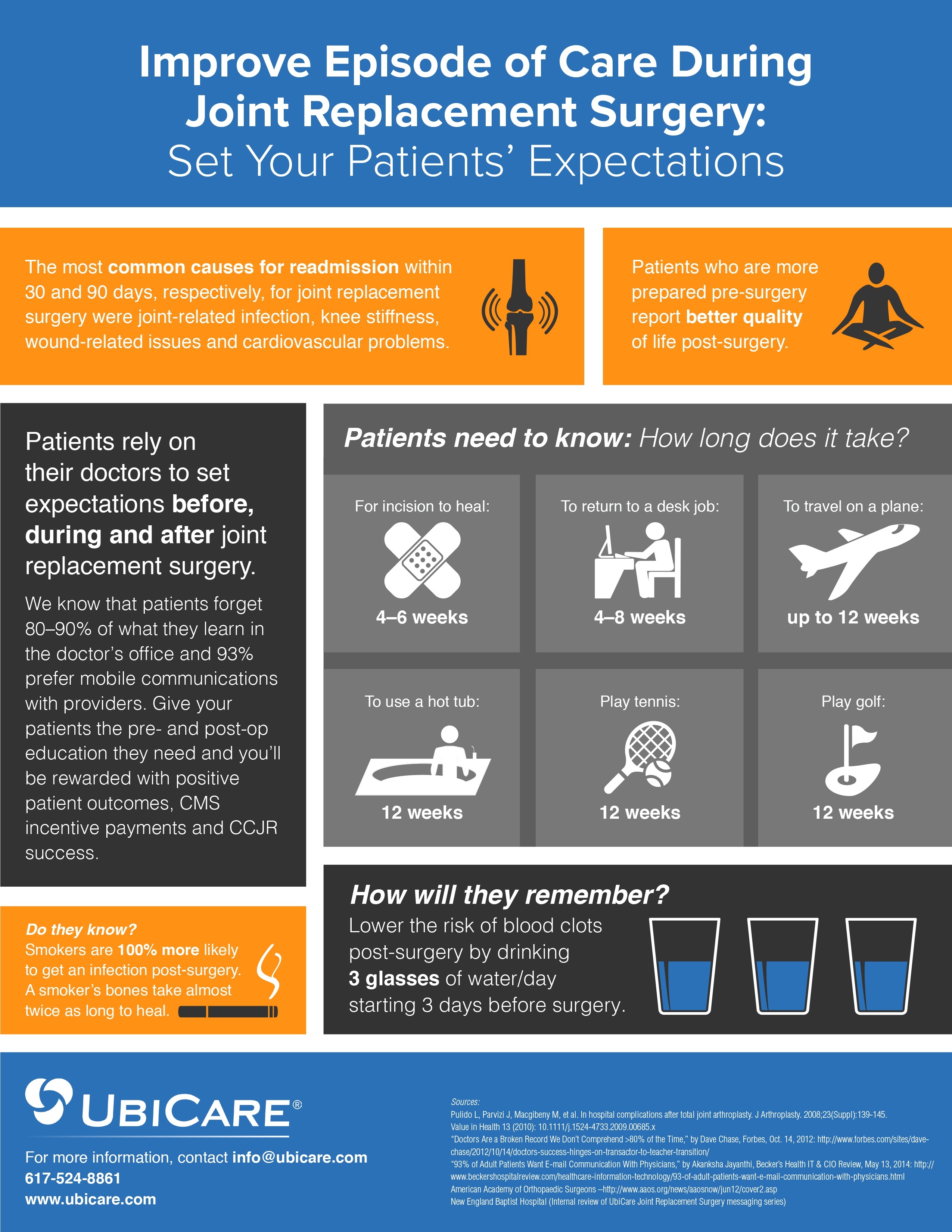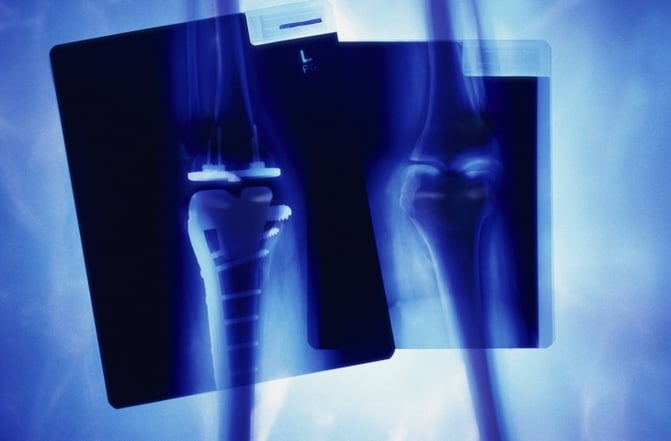The long-awaited Comprehensive Care for Joint Replacement initiative (CJR) became reality on April 1, 2016. Under CJR, hospitals must find ways to rein in costs, reduce complications and improve patient outcomes for hip and knee replacements—the most common joint-replacement procedures—in order to receive maximum reimbursements from the Centers for Medicare & Medicaid Services (CMS).
UbiCare and the Startup Institute Focus on Innovation in CJR Patient Education
Topics: Improving Patient Outcomes, Comprehensive Care for Joint Replacement, Innovation
Setting Patient Expectations Is Key to Post-Acute Care success
Improving the patient experience with rehabilitation and recovery after joint surgery counts big in CMS’s new Comprehensive Care for Joint Replacement (CJR) payment model. So it behooves hospitals to manage patient expectations about their discharge destination and rehab care as early in the care episode as possible.
Topics: Comprehensive Care for Joint Replacement, Patient Experience
CMS’s Bundled Payment Plan for Joint Replacement Is Here to Stay
This week, CMS released its final rule for Comprehensive Care for Joint Replacement (CJR), putting 790 hospitals on notice that hip and knee replacement reimbursements from the nation’s largest insurer will be tied to cost containment and high standards for patient care.
Topics: Improving Patient Outcomes, Comprehensive Care for Joint Replacement
Hospitals benefit from setting patient expectations early
Setting expectations early is shown to improve patients' episodes of care, improve patient outcomes and reduce readmission rates. It also prepares your hospital for Centers for Medicare & Medicaid Services (CMS) initiatives like Comprehensive Care for Joint Replacement (CJR).
Topics: Improving Patient Outcomes, Comprehensive Care for Joint Replacement










